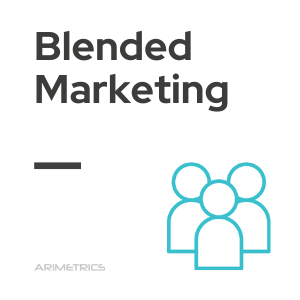
Definition
Blended marketing is the perfect combination of traditional (offline) and digital (online) marketing strategies to attract the attention of the potential customer and achieve the objectives of the company. It is characterized because it can be used by any type of company, transmits a global brand image and allows adapting the degree to which offline and online actions are used depending on the specific campaign.
The main advantages of blended marketing is that a high budget is not required (you can put ads in conventional media more humble than television), the internet exponentially multiplies the noise of the campaign and increases the reach, since it does not exclude the public without digital experience.
The tendency to completely separate digital marketing actions from traditional ones, which led many companies to create even different departments for one and the other, has gone down in history. Even with the digitalization of habits that has meant the widespread use of the smartphone and the modification of behaviors in the ‘millennial’ public, the approaches of offline marketing continue to be in force today.
Phases of blended marketing
To implement a blended marketing campaign it is essential to have designed the process previously so as not to make mistakes, since these are actions that are usually economic but that directly affect the image of the company. These are our recommendations:
- Precisely define the tone of the campaign to maintain the same brand image offline and online.
- Carefully segment the target audience of the campaign.
- Establish very clear objectives and assess whether this type of strategy is profitable for the sector in which the company works.
- Analyze the media and choose the ones that best suit the target audience.
- Take advantage of online marketing resources,such as the impact on social networks or analytics tools to quantify the results.
Examples of blended marketing
- Samplia. This company, which develops its activity in Spain, Mexico, Guatemala and Panama, offers samples of products in vending machines of shopping centers in exchange for registration in its application. Its operation is very simple: the user only has to download the app, mark the code of the machine and get the product immediately.
- Special K. The cereal brand devised a campaign called Special K Tweet Shop, in which you could buy through ‘tweets’.
- KLM. The airline investigated passengers who had tweeted something about their flights that day and surprised them with a personalized gift according to their tastes and hobbies.
- Destinia and La Rioja Tourism. The online travel agency placed advertising posters in the Madrid Metro with small dispensers with different aromas related to La Rioja. He encouraged users to identify and share them with a hashtag to enter a trip draw.
- Walker Crips. To give away samples of its new flavors, the french brand locked former footballer Gary Lineker in a dispensing machine on the streets of London. Everyone who tweeted after interacting with Lineker got a bag of potatoes.
